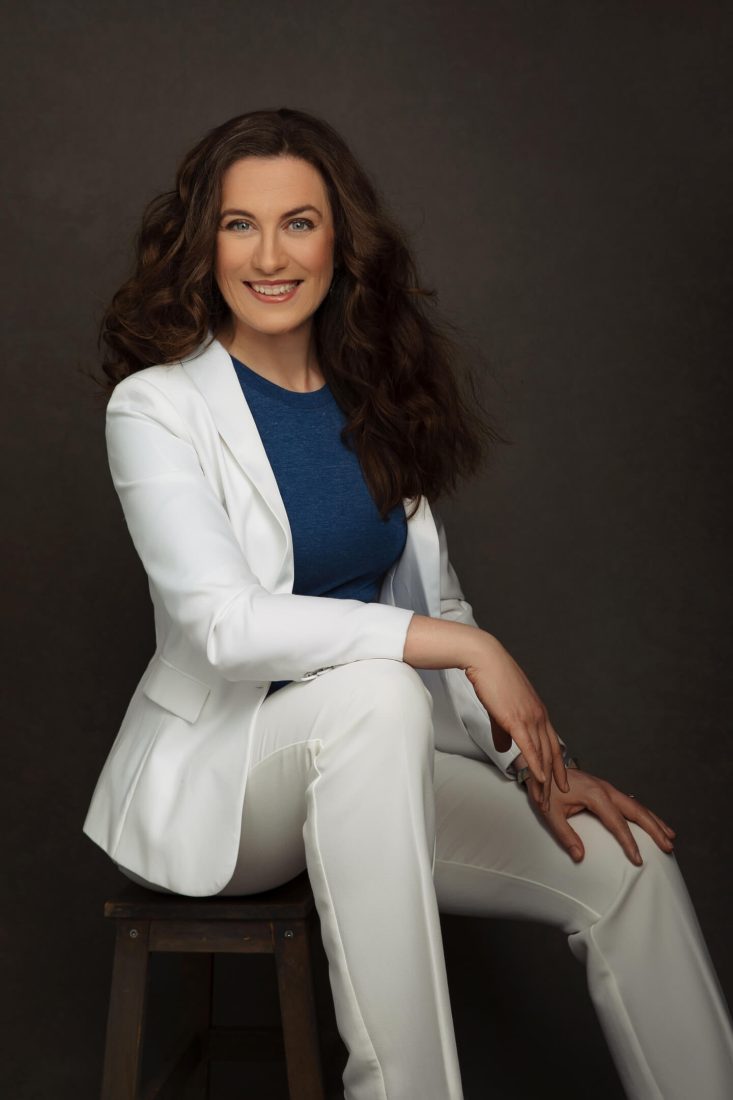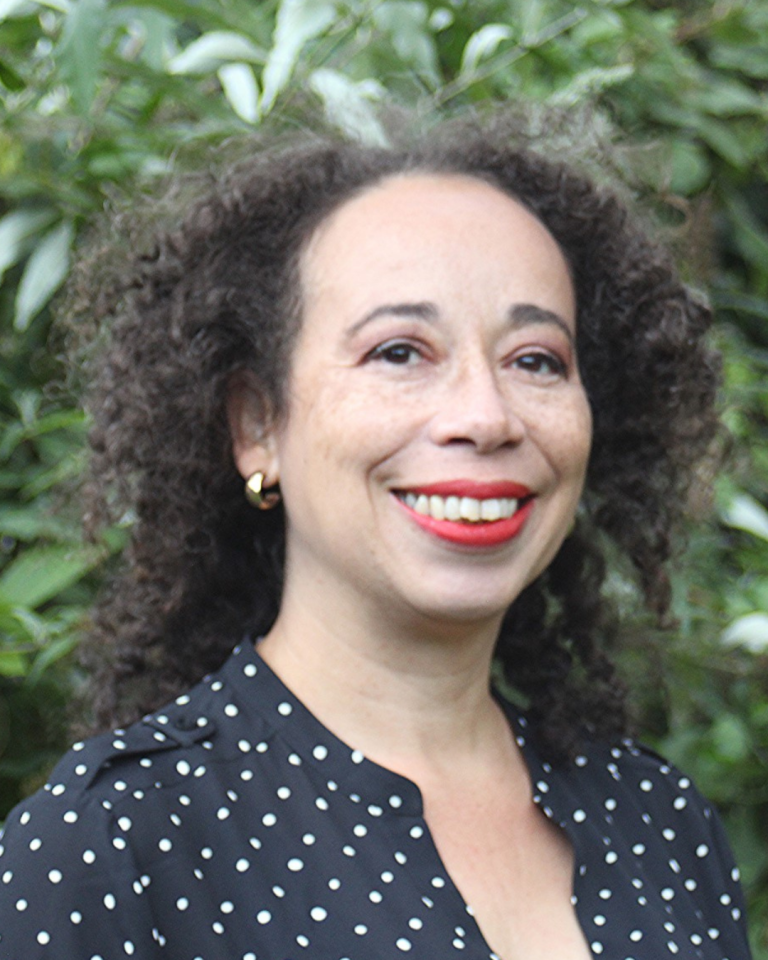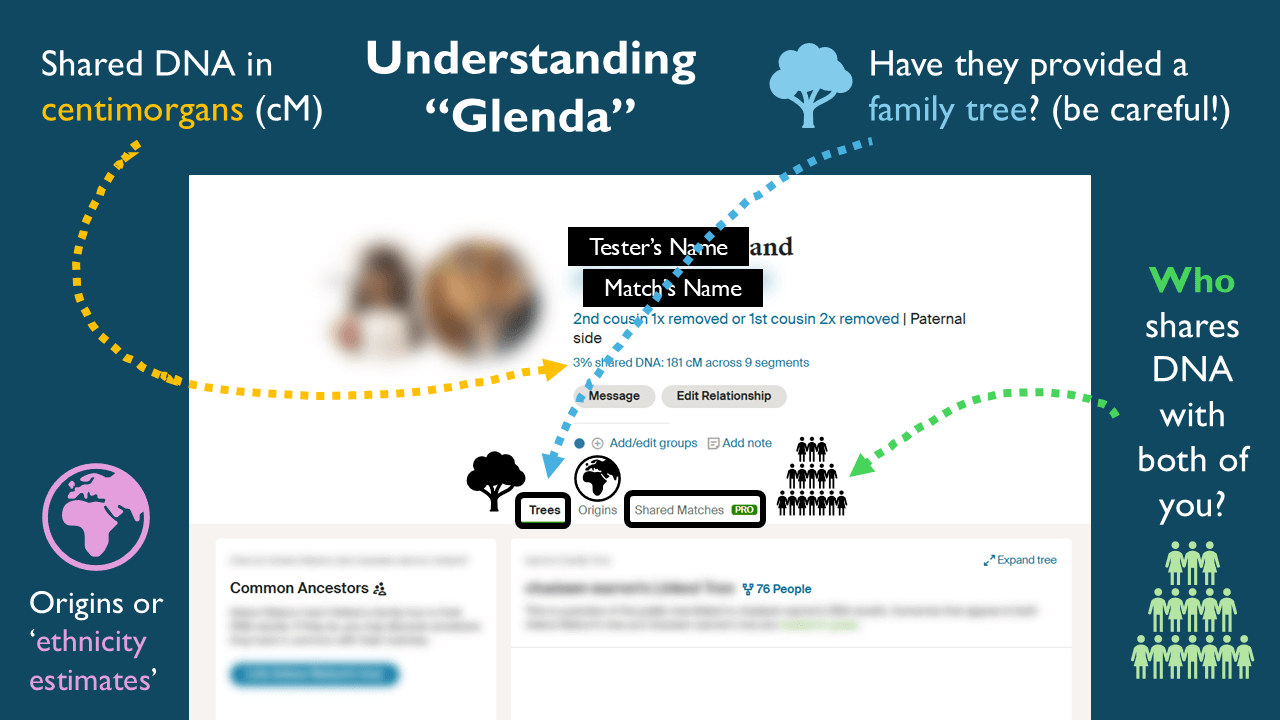Dr. Sophie Kay started out her professional life as a research scientist at the University of Oxford, attaining her D.Phil. in 2015 for her work on cancer research problems spanning biology, mathematics and computer science. Nowadays she brings family history research and education services to clients and audiences around the world as a professional genealogist and geneticist at her company, Khronicle® (http://www.khronicle.co.uk).
DNA analysis is one of the core parts of her working life, identifying unknown parents and grandparents for her clients and helping them to reclaim their heritage and identity. Aside from genetic research, Sophie’s work also brings the joy of delving into archives to investigate a range of historical records from medieval times to modern day.
Sophie is the Ancestry and Genealogy Expert for popular archaeology show, Time Team (https://www.timeteamdigital.com/the-team), collaborating with a fantastic group of specialists to unearth the past and bring human stories to the fore. She is also a frequent contributor to Family Tree Magazine (https://www.family-tree.co.
When she’s not delving into clients’ DNA results, poring over archival documents or teaching genealogy, Sophie writes articles for her family history blog, The Parchment Rustler (http://www.parchmentrustler.com), where she shares tips, tricks and strategies for making the most of your ancestral research journey.

Meet Dr Sophie Kay, along with WW2 'brown baby' Arlene Nelson and TMM Director Dr Chamion Caballero, at their free panel event at the British Science Festival in Liverpool on Saturday 13 September 2025.
Drawing on their work together on The Mixed Museum's 'Reclaiming History Through Science' project, the three will be talking about the benefits and challenges of at-home and wider ancestry testing.



Learn from Sophie about how DNA test kits work, hear from Arlene how she has used DNA testing in her search to find her Black American family, and put your DNA testing-related questions to the panel.
The session will be introduced by Chamion who will also chair the audience Q&A.
Many thanks to the British Science Festival for supporting this event.
DNA and Identity: Ethics and emotions in ancestral genetic testing
Saturday 13 September
Venue: Bluecoat - Garden Room, 16.30-17.30
To book your free ticket, visit The British Science Festival website.
Sophie joined The Mixed Museum's 'Reclaiming History Through Science' project in 2024 during its final phase, working with TMM's ‘brown babies’ group (i.e. the children and descendants of white British women and Black GIs born during and after WW2) to explore what DNA is and how it can be used to identify unknown recent ancestors.
Her live discussion sessions with the group provided a user-friendly overview of the science behind DNA testing, looked at how the main types of commercially-available DNA test (autosomal, Y-DNA and mitochondrial) can help, and how to decide which company or database to use when taking the plunge with testing.
During the project she enjoyed wonderful conversations with, and questions from, members of the group on subjects ranging from the rich diversity of DNA within African diaspora populations, to sex determination, to technical DNA analysis.

Sophie says: “We should all have the right to know who our biological parents and grandparents are, and to embrace the many different aspects of identity and heritage which this may bring. For anyone who may – for whatever reason – have grown up without this information, DNA testing opens the door to exploring these questions, and offers people the autonomy to do this at their own pace. Understanding both the vast potential and the limits of DNA testing, as well as the safeguards and decisions to consider, are a vital part of this journey. Having access to accurate, evidence-based information about this process is incredibly important.”
We should all have the right to know who our biological parents and grandparents are, and to embrace the many different aspects of identity and heritage which this may bring.
- Dr Sophie Kay
Sophie is a firm believer that science is for everyone. She says:
'It can (and should!) be engaging – ‘technical’ needn’t mean ‘dull’! I can’t wait to learn from and draw upon The Mixed Museum’s historical expertise and innovative approach in dovetailing the arts and humanities with science – there’s so much we can achieve when we work together.
Choose 100 different people on a DNA testing journey, and you’ll hear 100 different stories of what that’s like. Whether you’re adopted or donor-conceived; whether you’ve discovered a misattributed parentage in your family, or were raised by your birth parents, there should be a place for everyone in family history and genetic genealogy. Behind the scenes, we’re developing plans to produce a range of resources to help people understand and navigate the process of DNA testing and family history research, in particular for those whose heritage spans both Black and White British communities and I’m keen to see what emerges as our plans take shape.

I hope that my collaboration with TMM as its first Scientist in Residence will open up conversations about the experiences, needs and concerns of Black and mixed-heritage DNA testers navigating a search for a parent or grandparent – or indeed wishing to test for general genealogical curiosity. And I’m looking forward to working with some fantastic people and enjoying lots of good conversations and questions as we go!'
Dr Chamion Caballero, Director of The Mixed Museum, says: “We are really excited to welcome Sophie as our first Scientist in Residence. Her commitment to making science accessible echoes our own approach to the power of lived experience to bring history and heritage to life in new ways, which we've recently been exploring with our wartime 'brown babies' families in our 'Reclaiming History Through Science' project.
Over the last few years, TMM has been contacted by so many people who are searching for relatives or trying to piece together fragmented family stories. Sophie’s expertise in both genealogy and genetic research will help us think more deeply about how we can support people on their family search journeys, while also opening up important conversations about identity, belonging and the role of science in shaping personal histories.”

Read more about The Mixed Museum's new Scientist in Residence initiative
Book your FREE tickets to Sophie, Arlene and Chamion's panel event exploring DNA ancestry testing in Liverpool
Read more about the 'Reclaiming History Through Science' project which explored the role of DNA testing in the lives of wartime 'brown babies' families